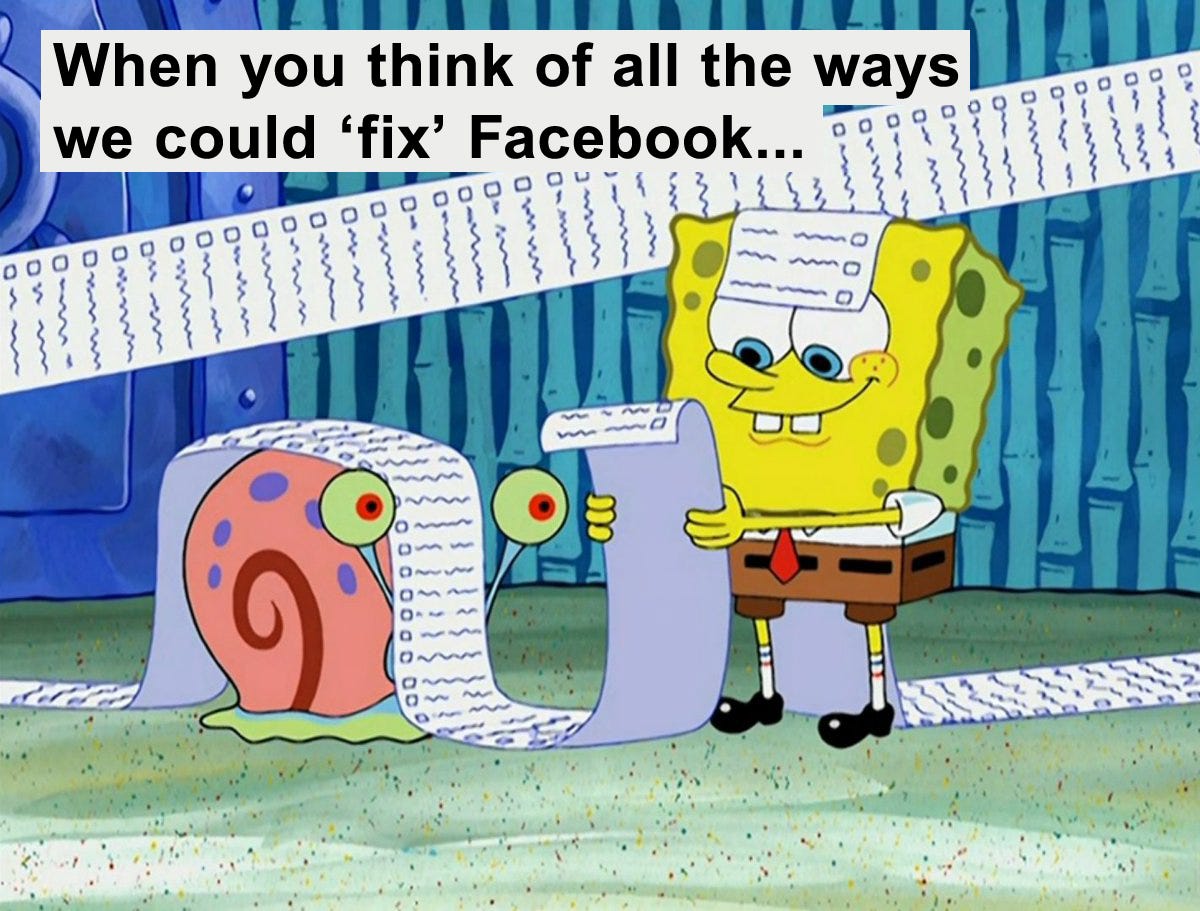This would reshape the internet as we know it.
PLUS: AI benchmarks, conflating wrongs & harms, and the online brain.
Hi, it’s Charley, and this is Untangled, a newsletter about technology, people, and power.
This week, I’m revisiting my second-ever issue, Some Unsatisfying Solutions for Facebook, to help you understand the internet-changing implications of a new lawsuit against Meta.
On to the show!
👇 ICYMI
I published an essay about how we’re molding ourselves to AI in pursuit of disembodied perfection and technological transcendence.
I explained why using large language models (LLMs) to replace human participants in research studies is a terrible idea.
I invited you to co-create a new essay on how generative AI might alter grieving and loss. To contribute, hit ‘reply’ and send me a note.
📰 Untangle the News
University of Massachusetts Amherst professor Ethan Zuckerman and the Knight First Amendment Institute at Columbia are suing Meta in federal court. The story begins when Meta permanently banned British software developer
from its platform for creating the popular browser extension tool Unfollow Everything. The tool allowed users to unfollow all of their friends. Rather than see an algorithmically curated newsfeed, you’d see a blank page — handing over more control to the user to decide whose profile they want to visit. As Barclay wrote then, “I had gained a staggering amount of control. I was no longer tempted to scroll down an infinite feed of content.”Zuckerman, a technologist and researcher, wants to test this empirically. He wants to create a new version of Unfollow Everything and research whether people feel more in control of their social media experience when using the tool. The answer matters because section 230 of the 1996 Communications Decency Acts states that it is the policy of the U.S. to “encourage the development of technologies which maximize user control over what information is received by individuals, families, and schools who use the Internet and other interactive computer services.” Given Meta’s treatment of Barclay, Zuckerman wants a “declaratory judgment” that the proposed research project is protected and legal. If Zuckerman wins, developers could create tools that would take the power tech platforms have amassed, and give a li’l bit of it back to the user — allowing us to customize what we see online. On Facebook, these ‘middleware solutions’ could enable users to pick and choose from a list of curated feeds optimized for different things.
This would fundamentally reshape the internet as we know it. Here’s what I wrote in 2021 about middleware:
This solution not only addresses Facebook network effects by introducing competition in the form of different feeds but also (potentially) reduces the problem of amplification:
Engagement would be spread across many services, and not centralized on Facebook's platform.
More importantly, middleware services would not necessarily optimize for engaging (re: outrageous) content.
Rather, they would be optimized for different things. I could pick a middleware provider that focused on journalistic content or (more likely) singing competitions and flash mobs.
Want to go deeper? Read this essay or stop by next week when I speak with
about Unfollow Everything, and Zuckerman’s lawsuit.Keep reading with a 7-day free trial
Subscribe to Untangled with Charley Johnson to keep reading this post and get 7 days of free access to the full post archives.




